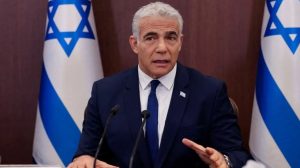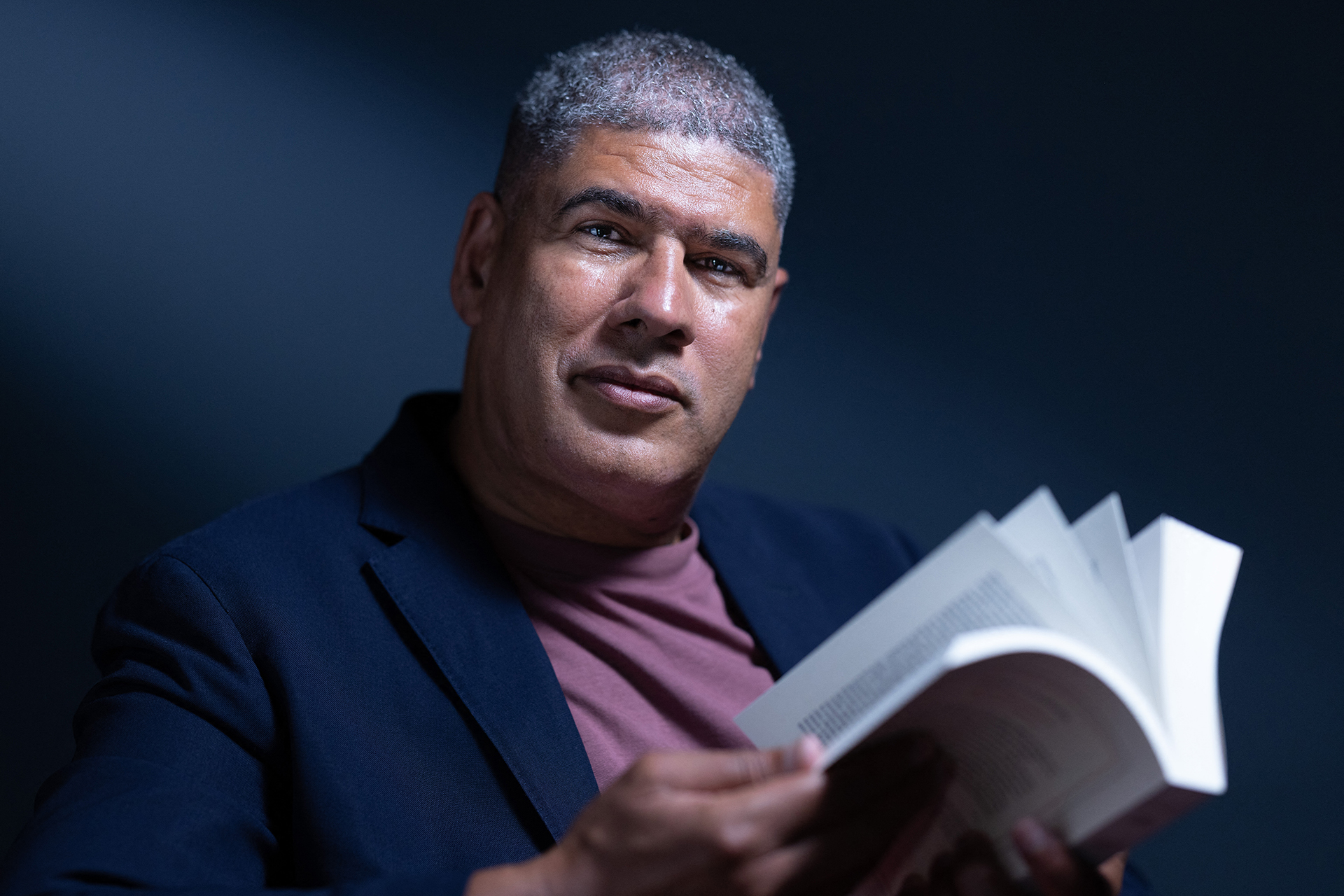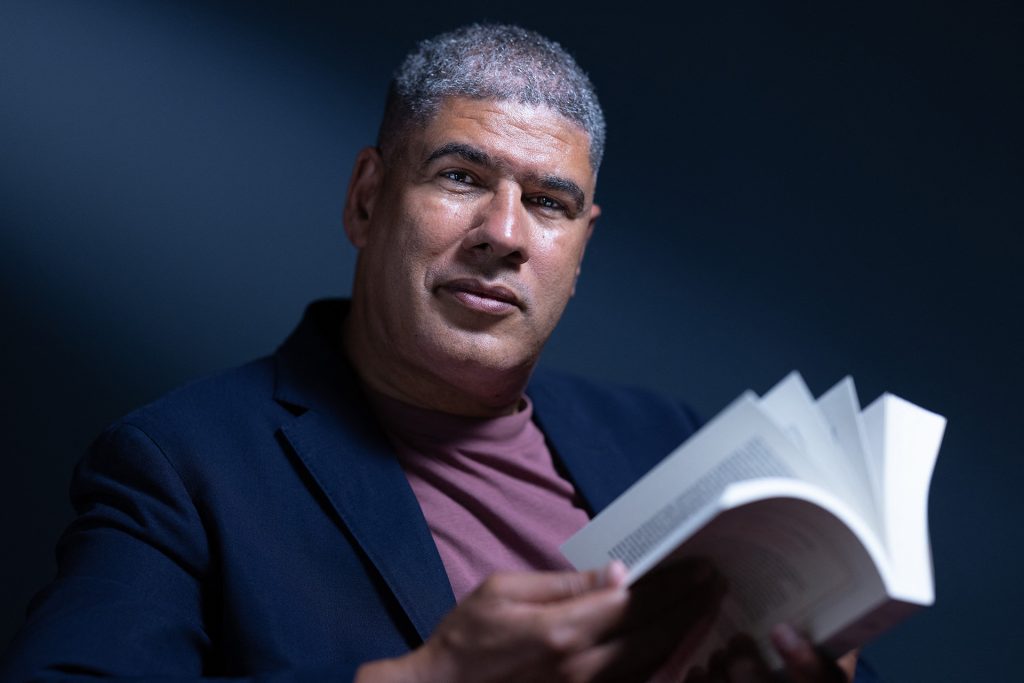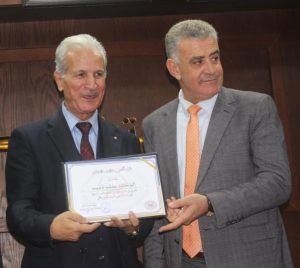“The imaginary cannot be colonized,” with this eloquent and challenging phrase, French-Moroccan writer Rachid Benzine opens his discussion about his new novel, the only literary work about the Gaza Strip in the current French literary season.
In his work titled “The Man Who Read Books” (L’Homme qui lisait des livres), he tells the story of a bookstore owner in Gaza, a man born in 1948, the year of the Nakba, and a lover of French culture, whose voice becomes a window through which we glimpse an unhealed wound.
This work attracted the interest of foreign publishers even before its release, raising an urgent question about the lack of global literary output that delves deeply into the human experience in Gaza.
Fourteen translations of the novel are scheduled to be published in the United Kingdom, Spain, Italy, and other European countries, which Benzine considers a great success in itself, as it means that the words of “Nabil,” the Gaza bookstore owner, have begun to spread and break through the walls of silence.
Benzine wonders what it means to be “a good man in times of war,” especially in the tragic context of Gaza. Facing the daily flow of horrific images that ultimately obscure the real Gaza and render it invisible, there is an urgent need for words.
He continues: “For example, they tell us: 63 people were killed today in Gaza. Because we get used to these numbers, a phenomenon occurs that strips people of their humanity.” Hence, it was necessary to resort to words—not political analysis or strategic studies, but words that delve into “intimacy” and restore the human face of the victims.
Benzine chose for his main character, Nabil, to be the son of a Christian father and a Muslim mother. This choice was not arbitrary but aimed to highlight the complex Palestinian situation, confronting those who always seek simplification and ideological rupture.
The writer did not want to reduce Palestinians to only a Muslim identity, nor to reduce what is happening in Gaza to merely a war between Arabs and Jews. Benzine says: “There are Christians, there is this mix… I wanted this character to stand at the intersection of different traditions, able to blend a Surah from the Quran and Psalms from the Bible.”
Nabil performs an act that the writer considers radical and revolutionary: reading. All the losses he suffered as a Palestinian born in 1948 do not fully define his identity. As he says through his character: “We were all born in 1948.”
Nabil owns a bookstore but spends his time giving books away instead of selling them. This act, under the circumstances we live in and given our special relationship with time, turns into an act of defiance and resistance. Benzine asks: What can literature do? The answer is clear and decisive: “It will not be able to stop bombs or bring life back to the dead, children, women. But it may be able to preserve the most resilient core of humanity.”
Nabil could have felt hatred at any moment, and the world would have understood after all he endured. But one thing is constant for this man: he “refuses to strip people of their humanity.”
In the face of the systematic destruction of Gaza, what hope remains? Benzine believes it is important to place this novel within the long cycle of time. Nabil tells the story of 1948, tells the refugees’ story, tells the place of writing, his brother, and his mother… He narrates a complete Palestinian epic.
The greatest danger the writer sees looming is the feeling of helplessness. “Some try to convince us that we can do nothing, that it is not in our hands. Whereas the opposite is true; each of us must at some point rise, protest, boycott, and move towards humanity.”
Rachid Benzine dedicated this novel “to all those who refuse to surrender to darkness,” for amid the rubble and destruction, there is a man who reads. This may seem like all there is, but at the same time, it is something immense. It is conclusive proof that “the imaginary cannot be colonized, and ultimately, freedom of thought remains.”














Recommended for you
Talib Al-Rifai Chronicles Kuwaiti Art Heritage in "Doukhi.. Tasaseem Al-Saba"
Exhibition City Completes About 80% of Preparations for the Damascus International Fair Launch
Unified Admission Applications Start Tuesday with 640 Students to be Accepted in Medicine
Egypt Post: We Have Over 10 Million Customers in Savings Accounts and Offer Daily, Monthly, and Annual Returns
Al-Jaghbeer: The Industrial Sector Leads Economic Growth
His Highness Sheikh Isa bin Salman bin Hamad Al Khalifa Receives the United States Ambassador to the Kingdom of Bahrain